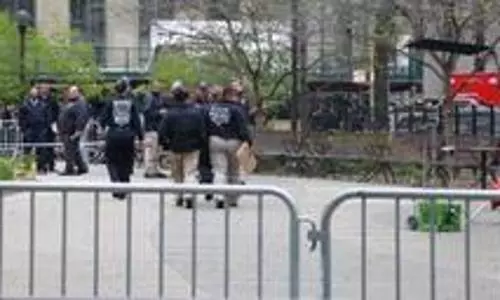
For Democratic Hartal
text_fieldsHartal is a form of protest that took birth as part of the national freedom movement. In South Asian countries, this still does exist as a form of protest. The word originated from two Hindi words har (every) tal (lock). Mahatma Gandhi played a big role in making this a model of strike, which grew as part of the popular law-breaking movement against British colonial rule.
However, that strike which began with noble goals has now become a big joke. It has even been given a title of national festival of Malayalis. The pre-hartal day rush at ration shops, chicken shops and beverages outlets alone will tell how Malayalis take hartal.
Many are the individuals and organizations that conduct a campaign against hartal. Interestingly enough, it is Gandhians who are in the forefront of such anti-hartal campaigns. That the leadership of a movement against hartal, propounded by Gandhiji, has fallen into the hands of Gandhians has to be seen as a paradox of history. It also has a dimension of apolitical attitude. The politics-shy section that takes a stance against the people's resistance are also against hartal. For that very reason, the idea of banning hartal, mimics the stand of the establishment that always shuns agitations and strikes. Because of that, those who insist on political clarity in opinions usually reject the theories of anti-hartal camp. All the same, in the background of a popular form of strike having taken an ugly turn, the hartal critics are getting more prominence.
One aspect highlighted by hartal critics is the different computations of losses caused by hartal. A general assumption is that it inflicts a loss of 200 crore rupees on the state's economy. This appears to be a sum arrived at by including even the trading loss caused on the hartal day. But there may be a flip side to it as well, i.e. the business that should take place on hartal day will be transacted on the day before and after the hartal day. That means even without opening shops on one day, the same volume of business will be conducted. For that reason, the trading sector is even likely to have some interest in having hartals. And with vehicles not plying on the roads, a significant amount of atmosphere pollution will also be reduced. From that angle, environmentalists should also welcome hartal. In other words, there are counter-arguments against the anti-hartal school. However, all this will apply only to hartals that are declared in advance. If midnight hartals are enforced, as done recently by BJP, the public will be in for real trouble with little choice.
In fact, it was the hartal declared by BJP on 14th December that brought the subject of hartal to serious rethinking. This column has dealt with that hartal earlier. That hartal was called in the name of a suicide by a middle-aged man who was fed up with life. BJP is a party in Kerala filled with leaders capable of telling blunders that can surprise anyone at nightly debates on TV channels. And a favourite for trollers too. No wonder then that blunders emerge from their actions too. But lighter aspects apart, that hartal has occasioned serious thoughts in our society about hartal itself.
The decisions taken by different trade and industrial organizations at a meeting on 20 December at Kozhikode, become relevant in this backdrop. The meeting was attended by 32 organizations representing various sectors of business including bakery, hotel and restaurant, petroleum dealers, bus operators, chambers of commerce, film distribution, hospital, taxi and lorry transport. This meeting was in continuation of an earlier one in Kochi on 18th. Their decision is to observe 2019 as an anti-hartal year. Anti-hartal conventions will be held in every district. They have decided to stop the practice of downing shutters at the drop of the word hartal. They have also requested the media not to give wide publicity to hartal calls. If these decisions are implemented, political parties who thrive on hartals will have a really hard time.
Strikes including hartal are an option in democracy. Banning it by law will not do any good. In fact it was when bandhs were banned by courts that hartal became common and active. At the same time, given that hartal is a democratic form of protest, there should also be the democratic room to not co-operate with it. Let us hope that the move by business associations will kick-start a democratization of hartal.






















